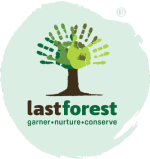
Our story
Discover the journey of Last Forest, rooted in sustainability and tradition. Explore how we empower indigenous communities and conserve biodiversity through our unique, handcrafted products.

A Journey into the Nilgiris
Last Forest, established in 2010, is rooted in principles dating back to 1993 when Keystone Foundation was founded to support indigenous communities in the Nilgiris. These communities, key to biodiversity conservation, rely on forest produce for their livelihood. Recognizing the lack of market opportunities, Last Forest was created to provide sustainable livelihoods by offering a market for honey and other indigenous products. Committed to fair trade and slow food, Last Forest ensures that the identity of these communities is showcased through their products. Today, Last Forest supports traditional knowledge systems and sustainable practices across India and internationally.

The journey of Last Forest began with the realization that conservation cannot succeed without supporting the livelihoods of indigenous communities. The first-ever survey on ‘Honey Hunters’ and ‘Beekeepers’ in Tamil Nadu highlighted the need for a market for forest produce. Last Forest bridges this gap by creating sustainable market opportunities for these communities, ensuring their traditional knowledge and practices are preserved. With 13 years of experience focused on honey, the enterprise expanded to other indigenous products. Today, Last Forest operates in ten Indian states and internationally, upholding the principles of ethical manufacturing and conscious consumerism.

Our Ecosystem
Our ecosystem is built to create sustainable livelihoods by connecting communities and markets in a circular network that supports all involved. We ensure that market shocks don’t harm communities, consumerism doesn’t destroy biodiversity, and technological advancements reach those who need them. Empowerment comes when communities can set market prices rather than accept those dictated by intermediaries. Our setup reflects this commitment to sustainable and equitable market connections.

Keystone
Founded in 1993, Keystone is a non-governmental organization dedicated to uplifting indigenous communities and conserving biodiversity. It conducted the first-ever survey on ‘honey hunters’ and ‘beekeepers,’ focusing on capacity building, improving livelihood opportunities, and bridging knowledge gaps. Keystone documents and imparts knowledge on sustainable production methods and biodiversity conservation, directly supporting indigenous communities in these efforts.

Last Forest
Founded in 2010 as a private limited company, Last Forest connects indigenous community producers with global markets. As a social enterprise, it serves as a marketplace for sustainable produce harvested by these communities. Supporting conscious consumerism, Last Forest has a global network aligned with sustainability movements like Fair Trade and Slow Food. This network bridges indigenous producers with global movements, promoting their presence and spreading information about local produce. The company partners with organizations that ensure biodiversity conservation through sustainable harvesting practices.

Aadhimalai
To empower the community and ensure fair market pricing, a Farmer Producer Organisation, Aadhimalai, was established in 2013 under the Companies Act. Aadhimalai procures forest produce from communities where producers set prices, and adds value at production centers in indigenous villages. This approach involves around 1,609 indigenous producers as shareholders and reduces transportation burdens. Production centers are often in community-owned buildings, where capacity building is provided for value addition, procurement, and processing. Products are then sent to Last Forest, which sources over 50% of its products from Aadhimalai.

NNHS
Wildlife enthusiasts often debate conservation strategies, with some viewing indigenous communities as harmful to biodiversity, while others, supported by the UN Declaration on the Rights of Indigenous Peoples, argue that these communities can effectively protect it through traditional knowledge. NNHS aligns with this belief, advocating for ecological societies where people and biodiversity coexist. They promote this through community outreach programs and information centers that build capacity for adopting conservation practices.
Our Team
Our Board

MATHEW
Leading from the front!

PRATIM
Inspiring ideas generated in the blink of an eye!

SNEH
Calmness and confidence projected with the utmost ease!

SEKHAR
Crunching numbers and projecting growth patterns!

SOMNATH
Sailing multiple ships through wit and critical thinking!

VISHAL
Fresh perspectives in a complex world














































